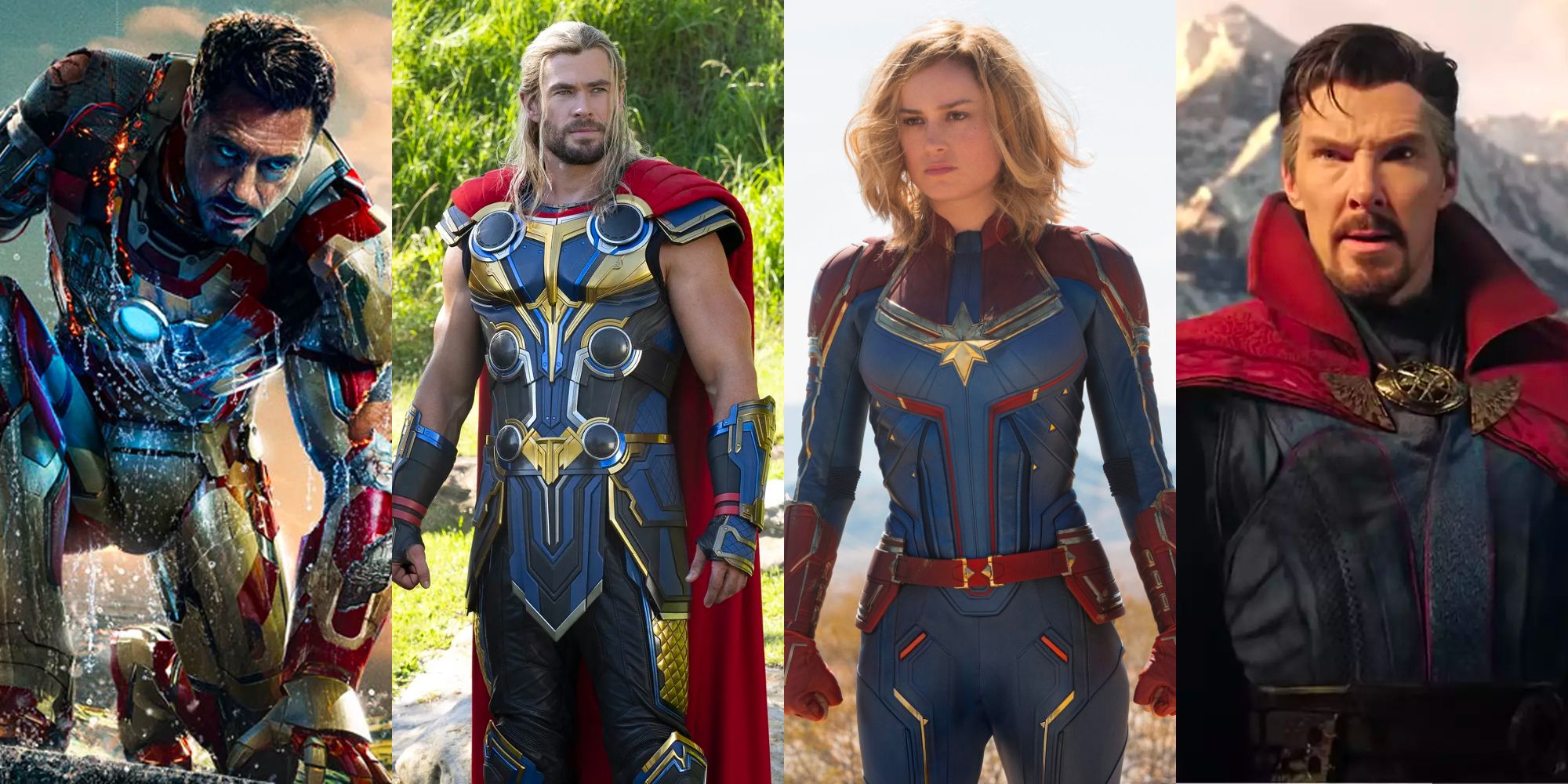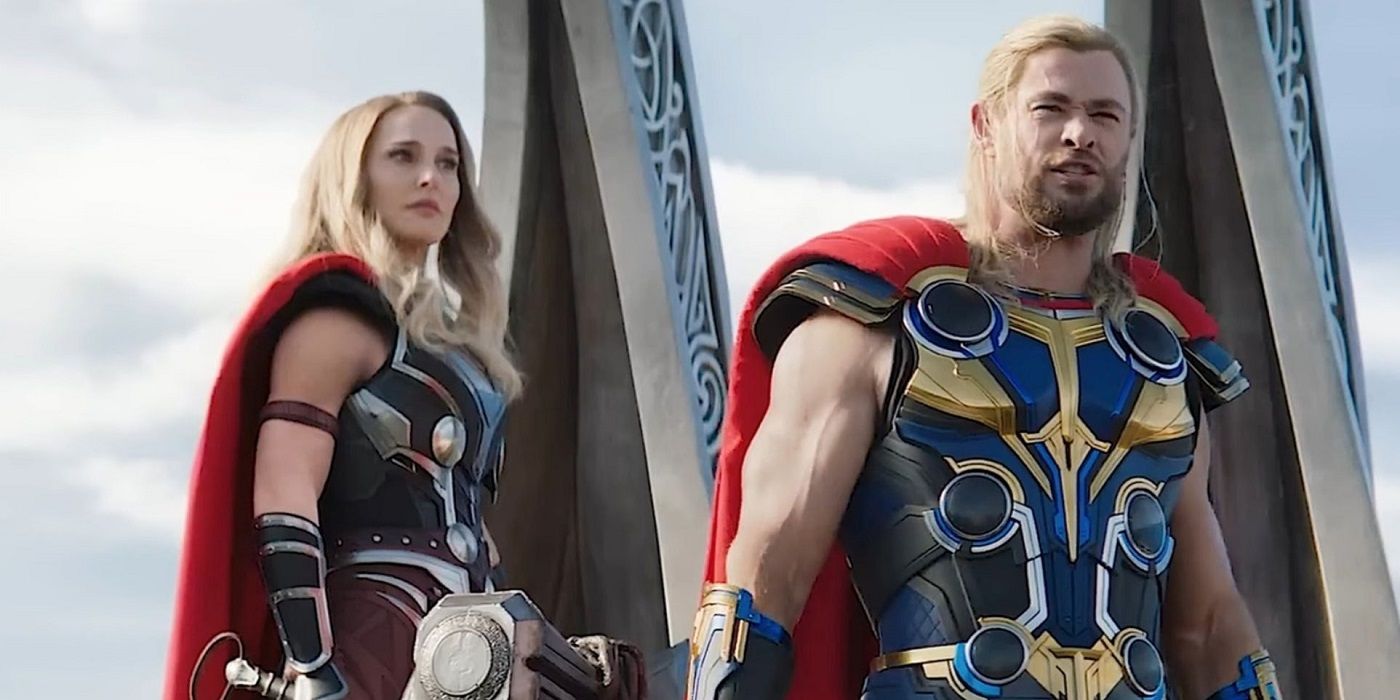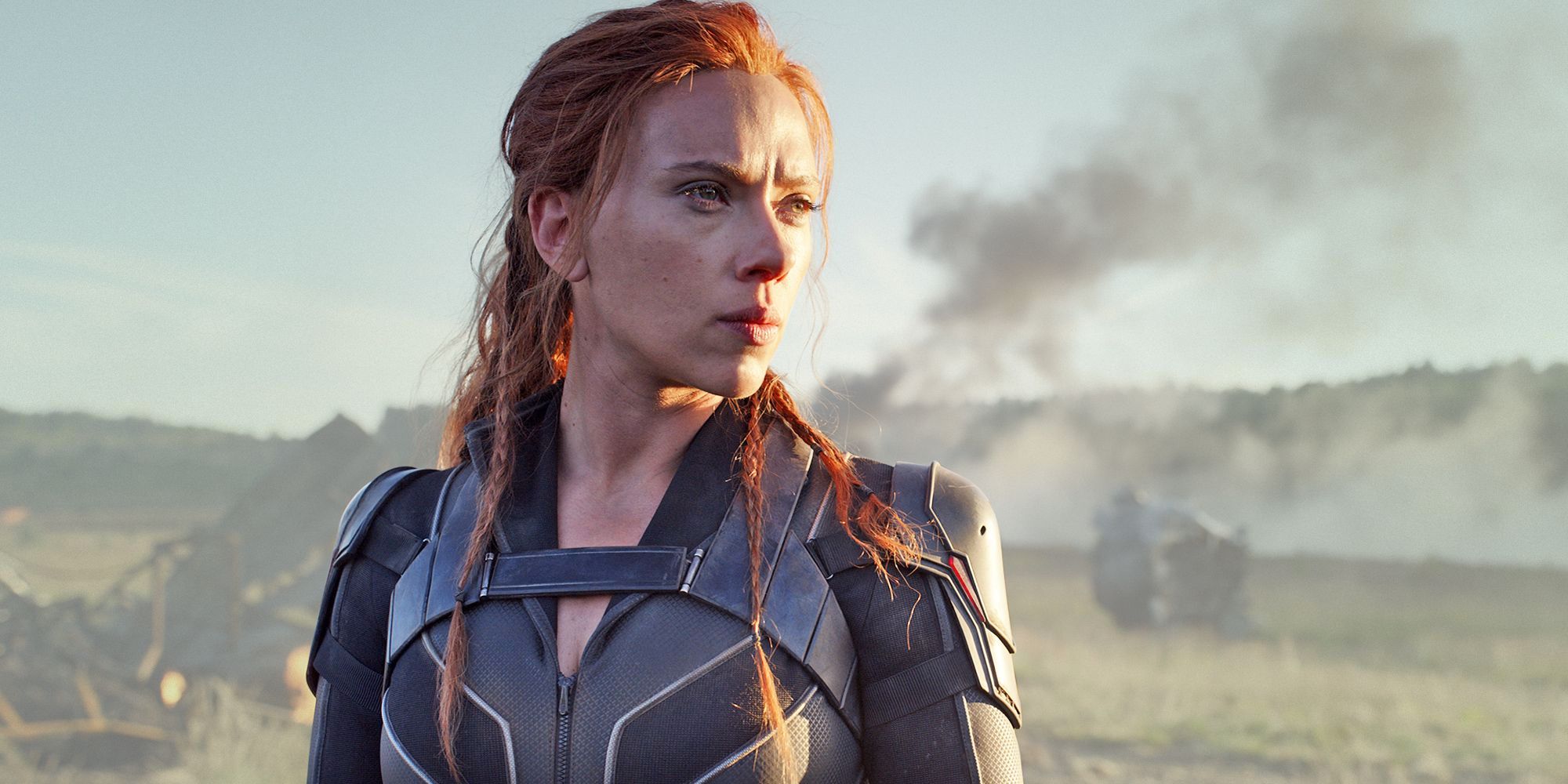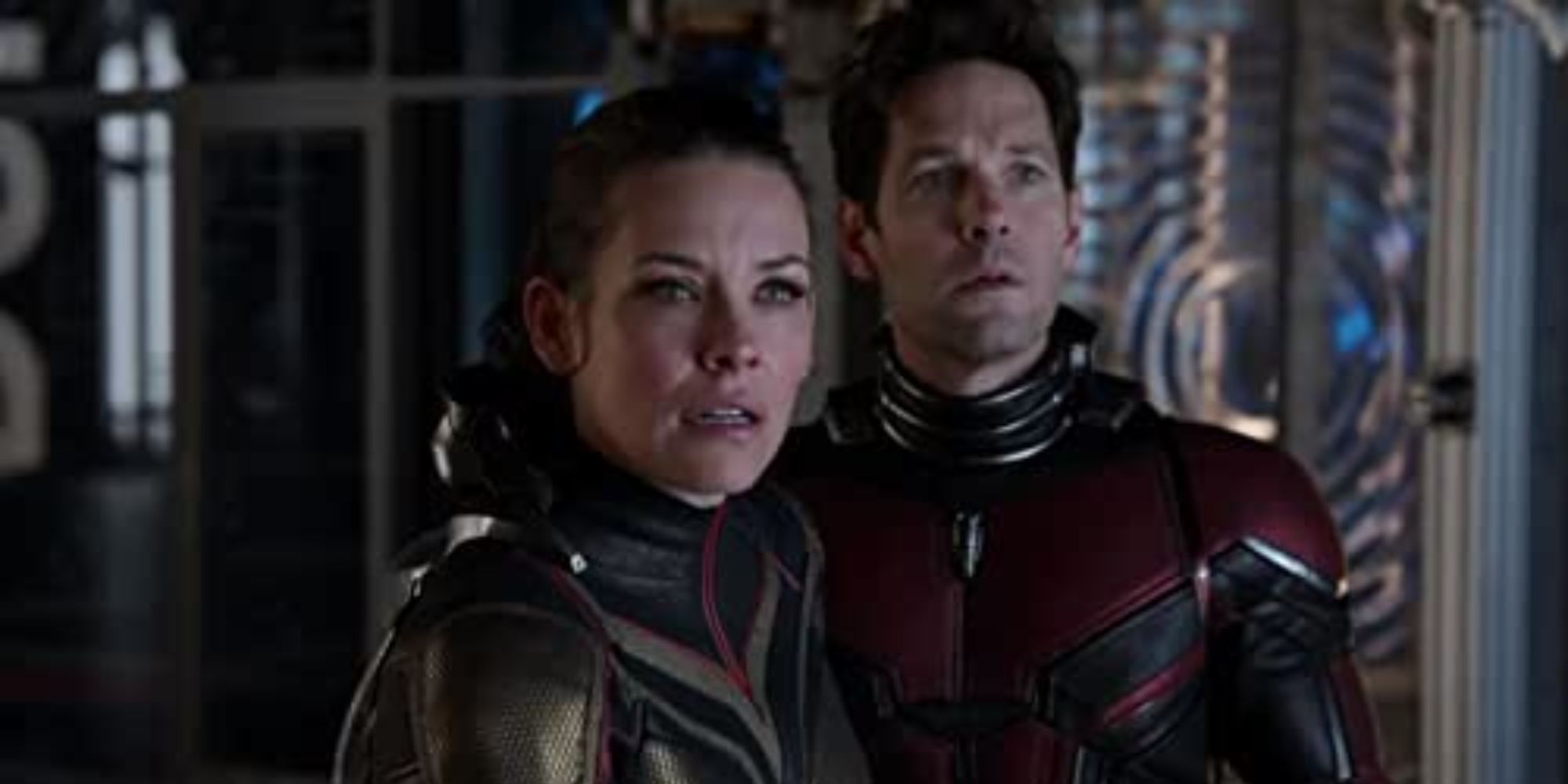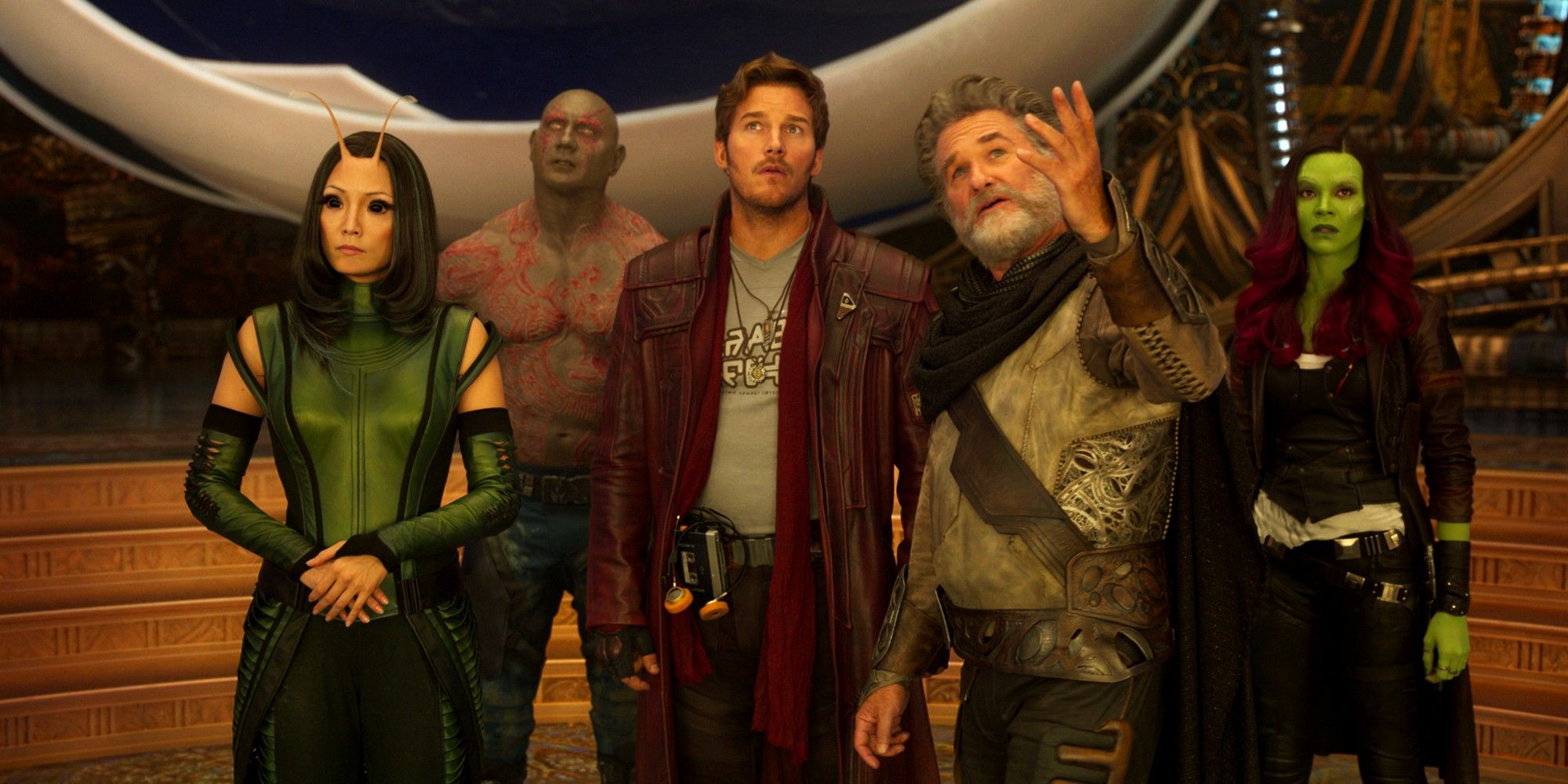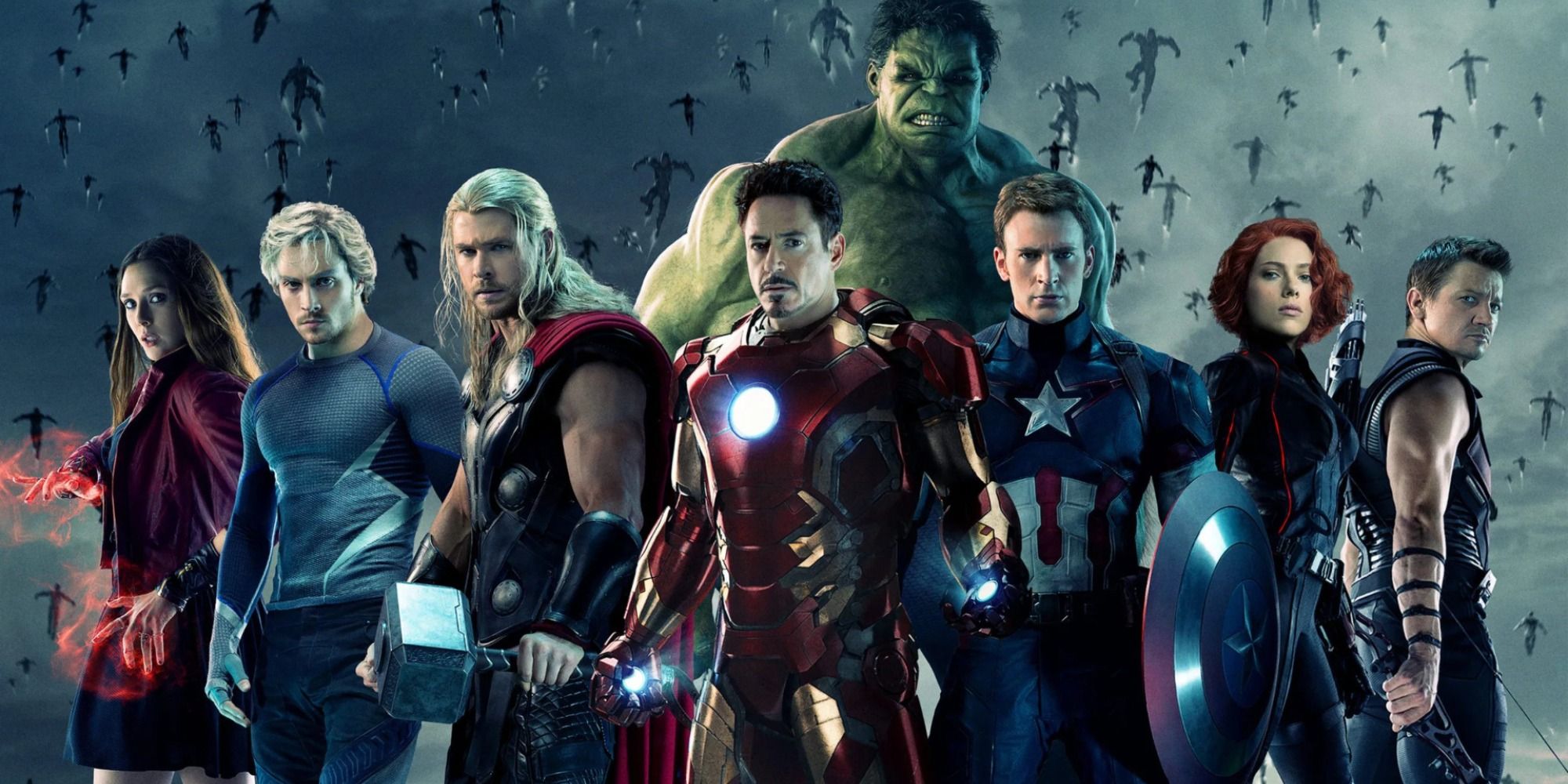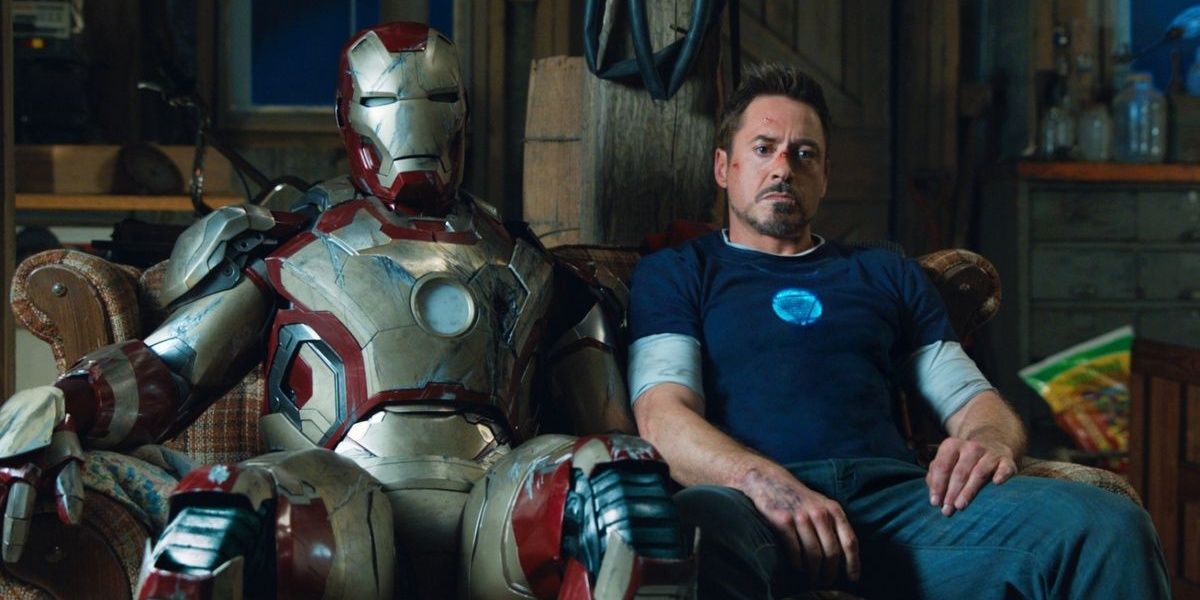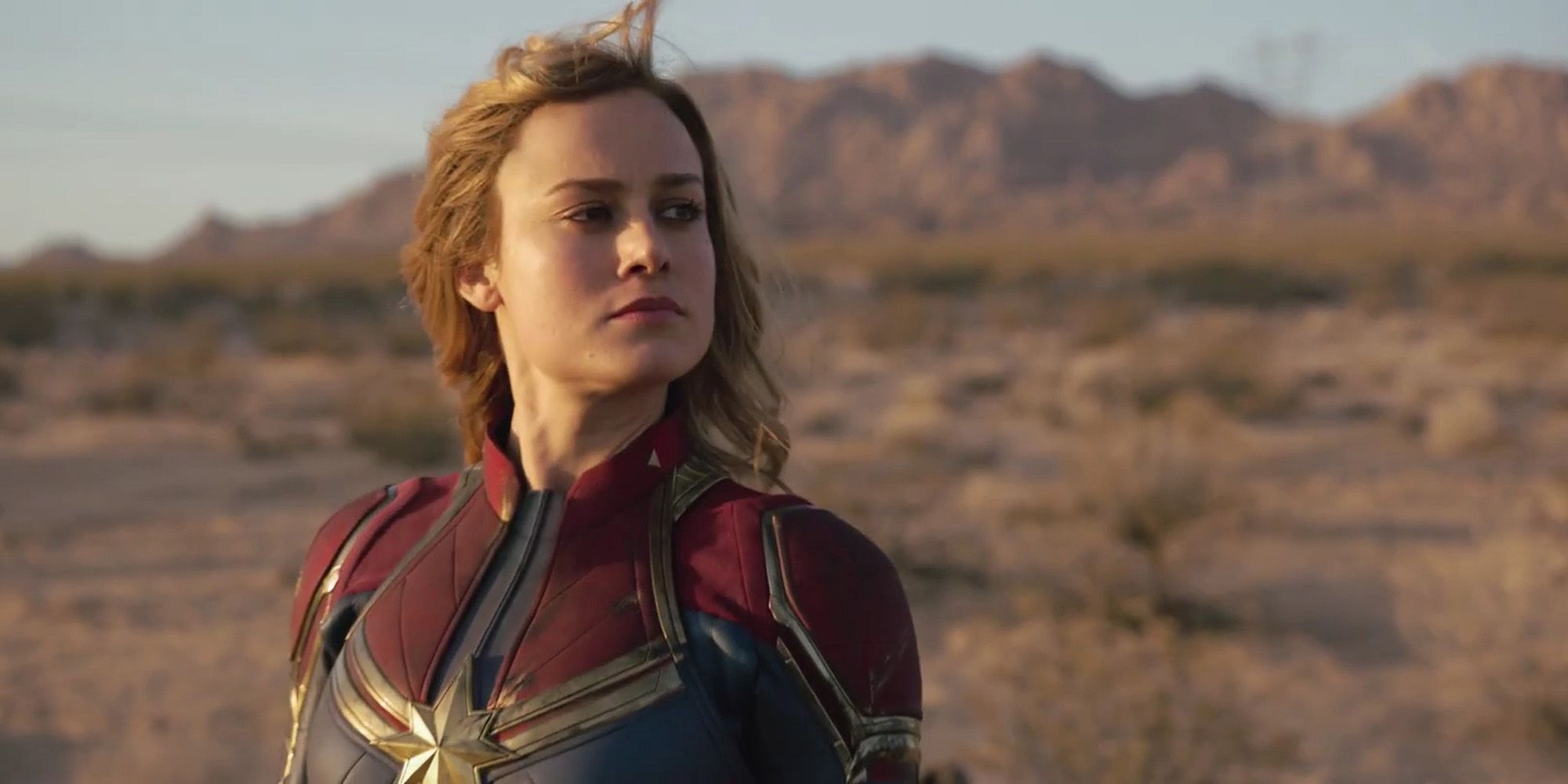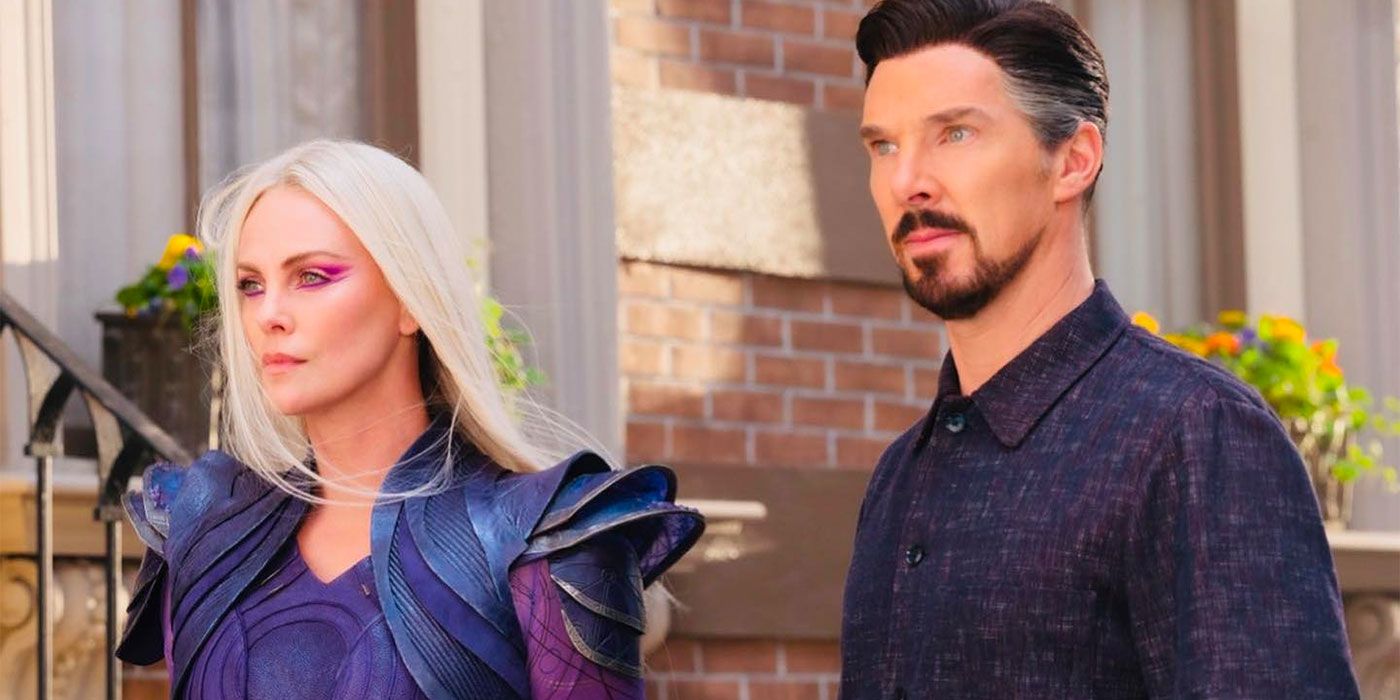Ever since Iron Man was released way back in 2008, the Marvel Cinematic Universe has been a steadfast pillar of the movie-going experience, delivering reliable, entertaining blockbuster action to the masses through multiple storylines and dozens of characters. Most, if not all, of the franchise’s films have experienced overwhelming financial success, but some have earned widespread critical acclaim whilst others have come to be viewed as lesser and, ultimately, forgettable entries from the MCU.
But then there lies an interesting middle-ground. A collection of Marvel films which have evoked both passionate appraisal and scorching criticism. Leading to countless debates between diehard fans, casual moviegoers, and even film critics, these few movies have divided audiences, leaving them to argue whether they’re disappointing installments to the franchise, or underappreciated gems which have been misunderstood.
‘Thor: Love and Thunder’ (2022)
It’s not an exaggeration to say that Thor: Ragnarok was one of the most pivotal films of the MCU as it brought a refreshing change of pace to fans and re-ignited the interest of many moviegoers who were experience fatigue with the franchise. So, interest was understandably high with Taika Waititi returning to direct Thor: Love and Thunder which promised to be even more fun than its predecessor.
For some, it delivered just that. A wild, no-holds-barred, fun-packed action-adventure which saw the MCU return to form with a flawless blend of excitement and entertainment while allowing Waititi ample room to play with the genre. Others didn’t view the film so favorably though, feeling as though the goofiness was ramped up to such an extent that connecting with the more dramatic side of the story was an impossible ask.
‘Black Widow’ (2021)
A long-awaited film from Marvel (and not just because of the pandemic), Black Widow felt like an emotionally complex viewing experience going in due to the character’s death in Avengers: Endgame. Natasha Romanoff/Black Widow’s (Scarlett Johansson) solo story felt, to many, like it may have once had urgency, but was now refined to being a run-of-the-mill MCU release which offered too little, too late.
It did do plenty right however, particularly giving the fan favorite character a fitting farewell while simultaneously introducing Yelena Belova (Florence Pugh) as an integral part of the MCU’s future. The reflective nature of the plot was one of the more contentious components of the movie but did offer audiences a glimpse into Natasha’s backstory in a way which cleverly avoided being just another origin film.
‘Ant-Man and the Wasp’ (2018)
While 2015’s Ant-Man was able to exist as a quiet aside to the MCU’s main storyline, Ant-Man and the Wasp was always going to attract the attention of the masses as it was the first Marvel movie released after Avengers: Infinity War. The abrupt deescalation in the wider story’s stakes left some fans wanting something more consequential with a tighter link to the rest of the franchise.
There were plenty of others who welcomed the tonal shift though, with the film’s charming impartiality flourishing in the hands of Paul Rudd and Evangeline Lilly. The lightness and refined stakes allowed for audiences to take a step back and collect their breath, with the film delivering an on-brand Marvel movie stacked with fun and blissful escapism which was designed to be easily enjoyed.
‘Guardians of the Galaxy Vol. 2’ (2017)
The follow-up to the infectiously fun Guardians of the Galaxy saw James Gunn double down on the outlandish, chaotic playfulness which made the first film such a hit. The entertainment value is undeniable, with a great soundtrack complimenting the fun-loving action sequences and, of course, the lovable motley mob of intergalactic heroes.
While the visual spectacle – from the aesthetic splendor to the stunning grandeur of the action scenes – was irresistible, there was a feeling of the series re-treading old ground with diminishing returns, from the found family dynamic being reinforced, to the overriding question of Peter Quill’s (Chris Pratt) true heritage. Guardian of the Galaxy Vol. 2 was an energetic, fun-fueled bonanza, but one which could have had more grace in the eyes of its critics.
‘Avengers: Age of Ultron’ (2015)
The second of the ensemble movies, Avengers: Age of Ultron has widely been accepted as the weakest of the four Avengers films. While it started strong with one of the best opening sequences in superhero film history, the rest of the movie lulled along in a manner which was entertaining but largely forgettable, and unable to capitalize on the story’s potential even with Ultron (James Spader) being one of the more noteworthy villains from the MCU.
However, there are plenty out there who appreciate the movie for what it did succeed at. Not least of which was the joy of watching the Avengers spend the entirety of a film working together, with the dynamic between team members being explored in more depth and intimacy than in any other MCU property.
‘Iron Man 3’ (2013)
The final installment of the Iron Man trilogy is still one of the most contentious MCU films in the eyes of the fans almost ten years on. To some, Iron Man 3 presented a welcome shift for the franchise with Robert Downey Jr. able to flex his acting chops in a story which saw Tony Stark struggle with PTSD while being attacked on all fronts by an interesting foe known as The Mandarin (Ben Kingsley).
The revelation of The Mandarin to be just an actor oblivious to the violence executed in his image (arguably the most divisive scene in the MCU) struck some as a ridiculous plot twist which defied logic, while came off as a moment of subversive brilliance to others. Everyone’s individual reaction to this turn likely dictates what they think of the movie, viewing the rest of the film as either pure entertainment or inaccessible lunacy.
‘Captain Marvel’ (2019)
A landmark achievement as the MCU’s first female-led feature film, Captain Marvel offered a blast-from-the-past origin story which was heavy on the 90s nostalgia as well as the buddy-cop dynamic between Carol Danvers (Brie Larson) and Nick Fury (Samuel L. Jackson). While the movie was the source of some external controversy, it performed well at the box office, crossing the $1 billion mark with ease.
However, the movie itself has been among the MCU’s most hotly debated ever since its release, with some citing its bland aesthetic and lack of a cohesive, unified vision as pitfalls which exposed the franchise’s adherence to, and even reliance on, formulaic storytelling. Others were more accepting of the film though, praising Marvel for telling a timely story of female empowerment which seamlessly blended with the blockbuster fun of the franchise.
‘Doctor Strange in the Multiverse of Madness’ (2022)
Perhaps the MCU’s most intriguing entry, particularly when looking at how it was received by the audience, Doctor Strange in the Multiverse of Madness had no lack of the Marvel DNA but showed no fear of going to some much darker places as well. With iconic director Sam Raimi at the helm, it contained some of the most shocking imagery in the franchise and proved that Disney was not afraid to follow Raimi’s penchant for horror.
With critics and fans alike having wildly differing readings of the film, it exists as the MCU’s most divisive entry as well as one of its darkest ventures. Some believe it strayed too far from the franchise's roots and lacked the poise and conviction to pull it off, while others have praised it as being the film the Avengers saga has desperately needed for years.

